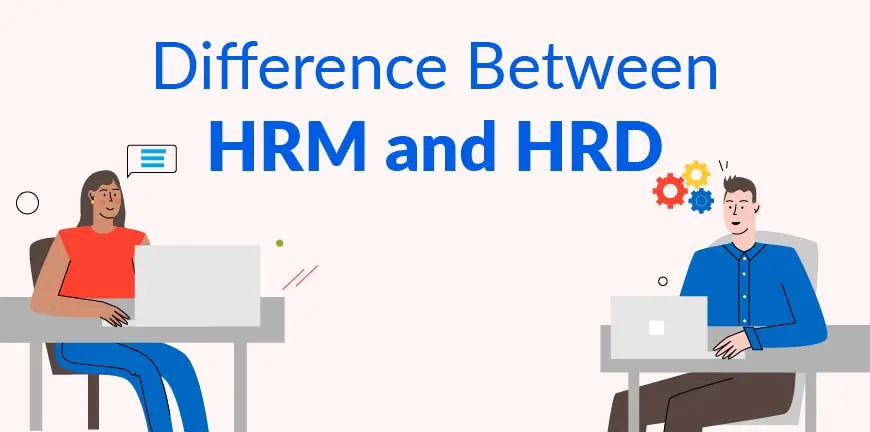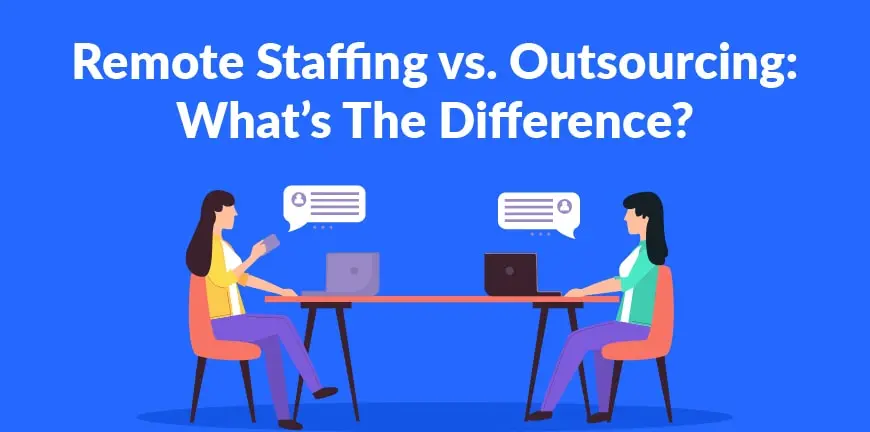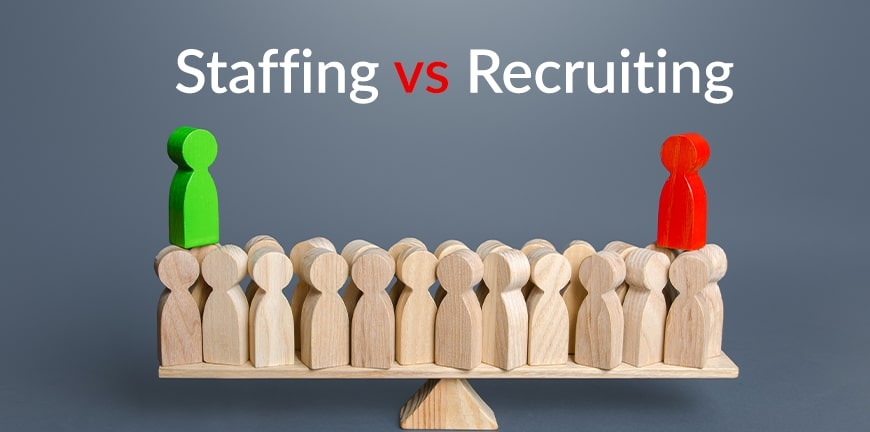
What is Patient Care Management?
30/05/2024
Difference between HRD and HRM
03/06/2024What is the future of work? This is a question people cannot easily answer, as it will be decided by the conditions prevailing in the world, the business climate, government policies, customer preferences and so much more. What one can be sure of is that working and collaborating online would continue to be a preferred way of working for the future. In this blog, we look at the difference between remote staffing and outsourcing, the key question many employers would have on their mind.
This makes remote staffing very relevant. Outsourcing of people management to another company is also a viable option, especially for those companies who do not have processes in place to hire remote staff and bring them on board, maintaining their work schedules and performance updates and providing them the support they need.
What Is Remote Staffing?
The process of adding employees to your team working remotely from anywhere and during separate shifts but still collaborating effectively to get the job done is called remote staffing. Remote staffing has several advantages that make it a popular choice today.
Might we also add that today many people with great talent, also seeking a great work-life balance, prefer to work remotely and have a higher preference for companies that allow them to do so.
What Are the Advantages and Disadvantages of Remote Staffing?
Remote staffing has both its advantages as well as disadvantages. The advantages of remote staffing are that you have a diverse pool of ideas from people who are remote, but you directly manage, and they come from different countries, so you get cultural diversity as well. You also remain compliant with certain statutory guidelines if there is anything that requires you to hire from a particular region.
When it comes to disadvantages, there are few for remote staffing as well. It can get overwhelming to manage your remote staff, and that will require a few more people in your HR team. Remote staffing also requires you to have your in-house teams collaborate with your remote teams at times that may not be convenient for one of the parties involved. Lastly, miscommunication can prove costly and lead to a bad reputation in those geographies, not easily repairable.
What Is Outsourcing?
Outsourcing is a practice where the company’s staffing and recruitment efforts are managed by another company. Outsourcing could apply to any function of business but in the sense that is used here it applies to the HR function.
Outsourcing ensures that the people who are assigned the task will be held accountable for it and that they would be able to carry it out in a better way as they would have experience handling such tasks in the past also.
What Are the Advantages and Disadvantages of Outsourcing?
Outsourcing is a great help for any business. You could be managing people or infrastructure, but you need to be sure you are good at managing them, especially during critical phases for your business, or you would be better off outsourcing them to an expert.
Outsourcing companies also have a better idea of the big picture and can advise you even what needs outsourcing and what can be managed in-house. They can better manage costs for you as well, probably even making it cheaper for you to outsource and they have better talent networks which help you onboard the best of candidates. The disadvantages with outsourcing are that you need to pick the service best suited to your needs and that there needs to be a data sharing agreement to ensure that any data shared remains secure.
What’s the Difference Between Remote Staffing and Outsourcing?
Remote staffing refers to bringing onboard a team of remote workers for a fixed term, but they are paid and managed in-house. Outsourcing refers to outsourcing of HR functions and could refer to outsourcing of recruitment or staffing needs or even payroll.
When outsourcing is applied to secure remote staff, it is then managed by a different entity and data and privilege sharing must happen between the employer and that company. The employer will then pay the staffing company a fixed amount to manage its remote staff and maintain their payroll too, in the process also handling compliance.
Which is Better: Remote Staffing or Outsourcing?
Both remote staffing (managed in-house) and outsourcing have their tall list of benefits. We just spoke about them. Which would be better depends on the size of the company or the organization and the affordability of the service. Alp Consulting has staffing and recruitment services tailored to meet the needs of any company. If you decide to take the outsourcing route, you cannot miss us. Talk to us today and let us help you.
Contact Us For Business Enquiry

Kasthuri R
Kasthuri R is the Co-Founder & Executive Director at ALP Consulting, bringing over 23 years of experience in search, staffing, and HR consulting. She has been instrumental in driving ALP’s recruitment, employee leasing, and executive search practices across diverse industry verticals. With deep expertise in talent acquisition, HR strategy, and operational management, Kasthuri has built scalable, client-focused solutions that enhance workforce efficiency. Her strategic leadership continues to steer ALP Consulting toward innovation and excellence in people management.




